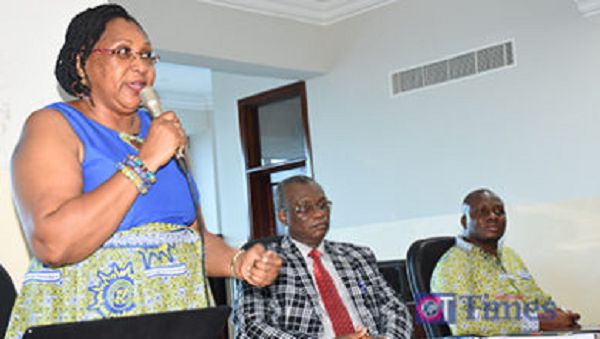
WAEC to vary WASSCE multiple choice format
The West African Examinations Council (WAEC) is considering varying items in multiple choice tests in the West Africa Senior School Certificate Examination (WASSCE).
According to the examinations body, the intention is to create a situation where options for multiple choice tests in subjects during the WASSCE would vary in terms of their positioning.
The move, it said, was part of efforts to curb the problem of examination malpractice in the WASSCE.
This was made known at a seminar organised by WAEC in Accra recently.
It was attended by directors of education, officials of WAEC, as well as heads and teachers of senior high schools in the Greater Accra Region.
The participants analysed the report of a research carried out by the Accra Section of the Research Department (ASRD) of WAEC, titled “The effect of varying positions of options in multiple choice test on performance of students in senior secondary schools (SHS) in Ghana.”
Procedure
In an overview of the report, the Head of Department of ASRD at WAEC, Mrs Henrietta Asiedua Yarquah, said students in 33 senior high schools in the country were examined in six subjects: Mathematics, English, Integrated Science, Social Studies, General Knowledge in Arts (GKA) and Economics.
Thirty students in each class were made to write the same subject papers, however, the positions of possible answers in the multiple choice options were arranged differently.
This, therefore, meant that the students could be seated close to each other but may have different versions of the same examination paper due to the varying positions of multiple choice options.
The research disclosed that the approach did not negatively impact the performance of the students in anyway and thereby recommended that WAEC should adopt it for the WASSCE.
Mrs Yarquah urged teachers to engage in more research so that issues troubling them in the area of examinations would be addressed and discussed at subsequent editions of the series.
Very appropriate
The Registrar of WAEC, Dr Iyi Uwadiae, described the new approach as appropriate and said he was optimistic that when implemented, it would help WAEC in its quest to enhance the integrity of its examinations.
He said the new approach would also help the council to save a lot of money that would normally have been used for printing new examination papers in the event of examination leakages or malpractices that result in the cancellation of papers.
“WAEC spends a lot of money when examinations are cancelled and we know that this approach would go a long way to address that issue,” he said.
Dr Uwadiae said the recommendations of the report would be submitted to the governing council of WAEC for approval, after which they would be implemented.
Practice it now
Another member of the research team, Mr Kwaku Dankwa, urged teachers and heads of schools to start practising the new approach in their terminal examinations.
That way, he said, the students would be well prepared for it and get familiar with it “when it is introduced into the WASSCE by the council.”
For their part, the teachers and heads of schools who participated in the seminar expressed delight that WAEC was committed to ending examination malpractices.
They proposed that there should be more education and broader consultations with stakeholders on the initiative prior to its implementation.
